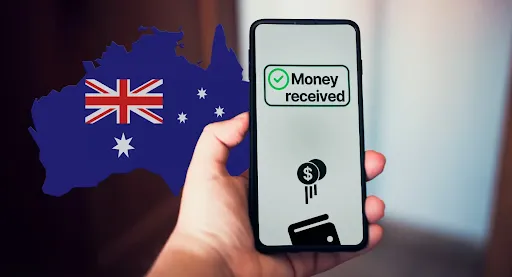
The Central Bank of Nigeria (CBN) recently introduced a revised regulatory framework for International Money Transfer Operators (IMTOs) in the country. Released on January 31, 2024, these guidelines outline the requirements, operational scope, ownership structures, compliance obligations, and governance standards for companies engaged in international money transfer in Nigeria.
This regulatory update reflects the CBN’s commitment to boosting forex liquidity, increasing diaspora remittances, and improving the ease of doing business for IMTOs. The new framework also brings stricter licensing conditions, clearer compliance requirements, and enhanced customer protections.
For anyone interested in starting a money transfer business in Nigeria, this guide provides a detailed breakdown of the Money Transfer License in Nigeria, including eligibility criteria, required documentation, compliance rules, and best practices.
An International Money Transfer Operator (IMTO) is a CBN-licensed company that facilitates the inbound transfer of foreign currency from individuals or businesses abroad to beneficiaries in Nigeria. IMTOs serve as intermediaries, ensuring that remittances are efficiently received and disbursed in line with CBN regulations.
The new IMTO framework introduces several changes that impact both new and existing players in the industry.
| Aspect | Previous Regulation (2014) | Updated Regulation (2024) |
|---|---|---|
| Who Can Operate? | Fintechs, banks, and IMTOs | Only IMTOs (Fintechs & banks prohibited) |
| Transaction Scope | Inbound & outbound transfers | Inbound-only transactions |
| Allowed Transaction Types | Person-to-person (P2P) only | Expanded to include Business-to-Person (B2P) & Business-to-Business (B2B) |
| Foreign Exchange Sourcing | IMTOs could buy forex domestically | IMTOs prohibited from buying forex from local markets |
| Settlement Methods | Bank transfer & cash pickup | Amounts above $200 must be settled via bank transfer |
| Annual License Renewal | Not strictly enforced | Mandatory renewal by January 31st each year |
| Collaboration with Agents | No specific rules | CBN approval required before appointing agents |
These changes indicate stricter control over IMTO operations, ensuring that only compliant businesses are allowed to operate in the money transfer sector.
To obtain an IMTO license, the applicant must be a registered company that meets the CBN’s financial, legal, and operational requirements.
To apply for an IMTO license, a company must submit an application to the Director, Trade & Exchange Department of the CBN, along with the following documents:
Required Documents
Upon successful review, the CBN grants an Approval-in-Principle (AIP), allowing the applicant to set up its operations. However, the final license is only granted once all compliance conditions are met.
IMTOs facilitate different types of money transfers to accommodate varying customer needs.
| Type of Money Transfer | Description |
|---|---|
| Bank Transfer | Transfers money between bank accounts via Bacs, CHAPS, SEPA, or SWIFT. |
| Wire Transfer | Direct international transfers between unlinked bank accounts. |
| In-Person Transfer | Western Union-style transfers where recipients collect cash at agent locations. |
| Mobile Money Transfer | Transfers funds directly to a recipient’s mobile wallet. |
| Payment Apps | Digital platforms like PayPal, WorldRemit, and Wise allow seamless online transfers. |
Remittances can be carried out through several channels, depending on convenience, cost, and recipient access.
IMTOs must establish strong AML & Counter-Terrorism Financing (CTF) measures to prevent illicit transactions
| AML Compliance Requirement | Details |
|---|---|
| Customer Due Diligence (CDD) | Verification of sender & recipient details. |
| Transaction Monitoring | Detection of suspicious activities. |
| Suspicious Transaction Reporting (STR) | Reports must be submitted to authorities within 24 hours. |
| Record Keeping | Maintain transaction records for at least 5 years. |
IMTOs must clearly disclose:
The CBN has strict enforcement policies for IMTOs that violate its guidelines.
| Offense | Possible Sanction |
|---|---|
| AML violations | Heavy fines or license revocation |
| Late renewal | Suspension of IMTO operations |
| Misrepresentation of fees & rates | Fines & penalties |
| Unauthorized outbound transactions | Immediate suspension |
An International Money Transfer Operator (IMTO) is a CBN-licensed company that facilitates inbound remittances from individuals and businesses abroad to recipients in Nigeria.
No, the 2024 CBN guidelines prohibit fintech companies from obtaining an IMTO license. However, they can partner with licensed IMTOs to offer money transfer services.
No, the updated guidelines restrict IMTOs to inbound transactions only. Outbound transfers must be handled through other financial institutions.
IMTOs can facilitate transfers via:
The licensing process includes:
No, banks cannot obtain an IMTO license, but they can act as agents for licensed IMTOs.
Beneficiaries receive payments in Naira via:
No, IMTOs cannot purchase forex from the domestic foreign exchange market for settlement purposes.
To start a money transfer business in Nigeria, you must:
The new IMTO framework reflects CBN’s ongoing efforts to strengthen the international remittance industry and ensure compliance with global financial standards. For businesses interested in starting a money transfer business in Nigeria, understanding the new licensing requirements, compliance rules, and transaction regulations is critical to success.

